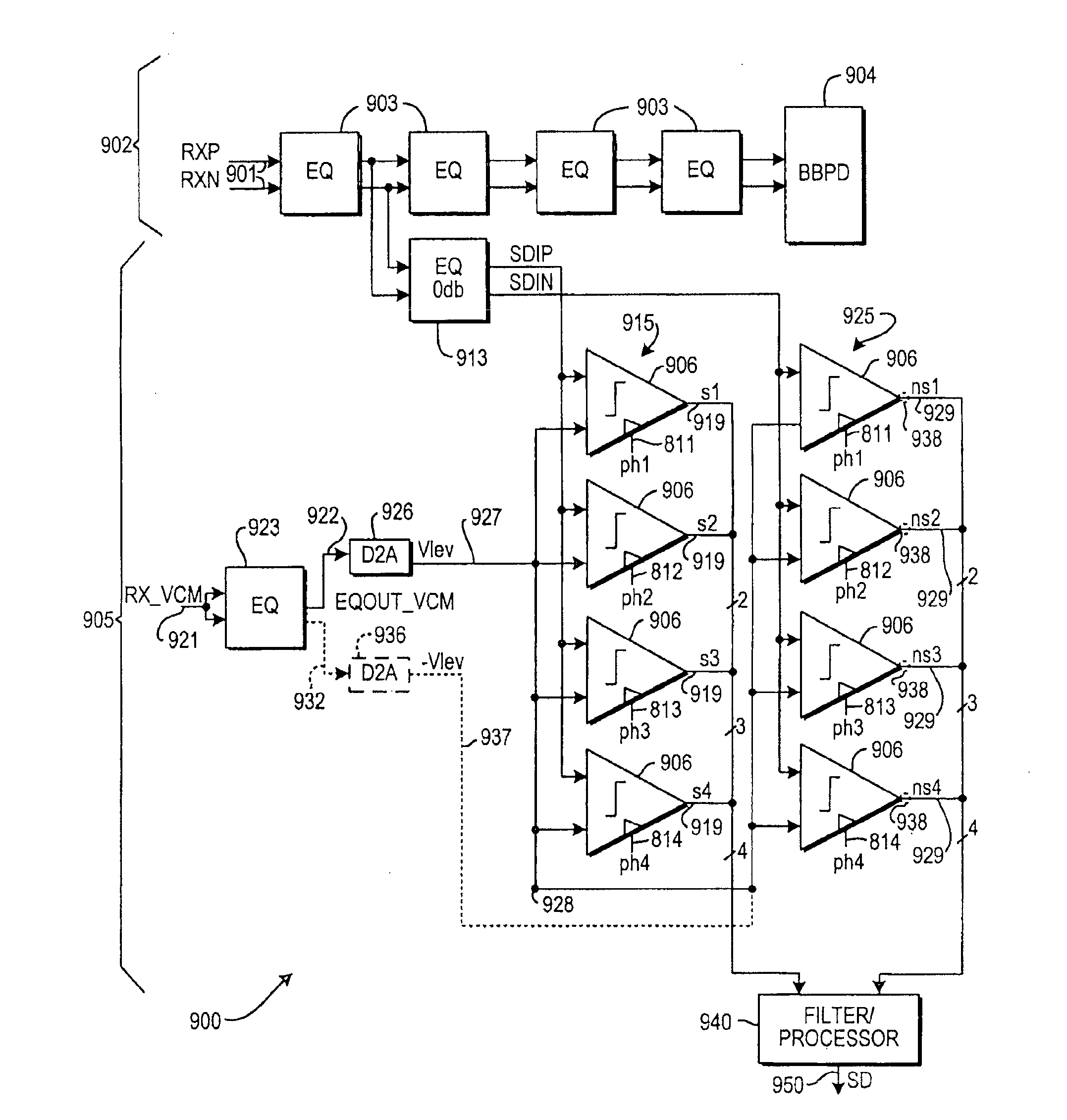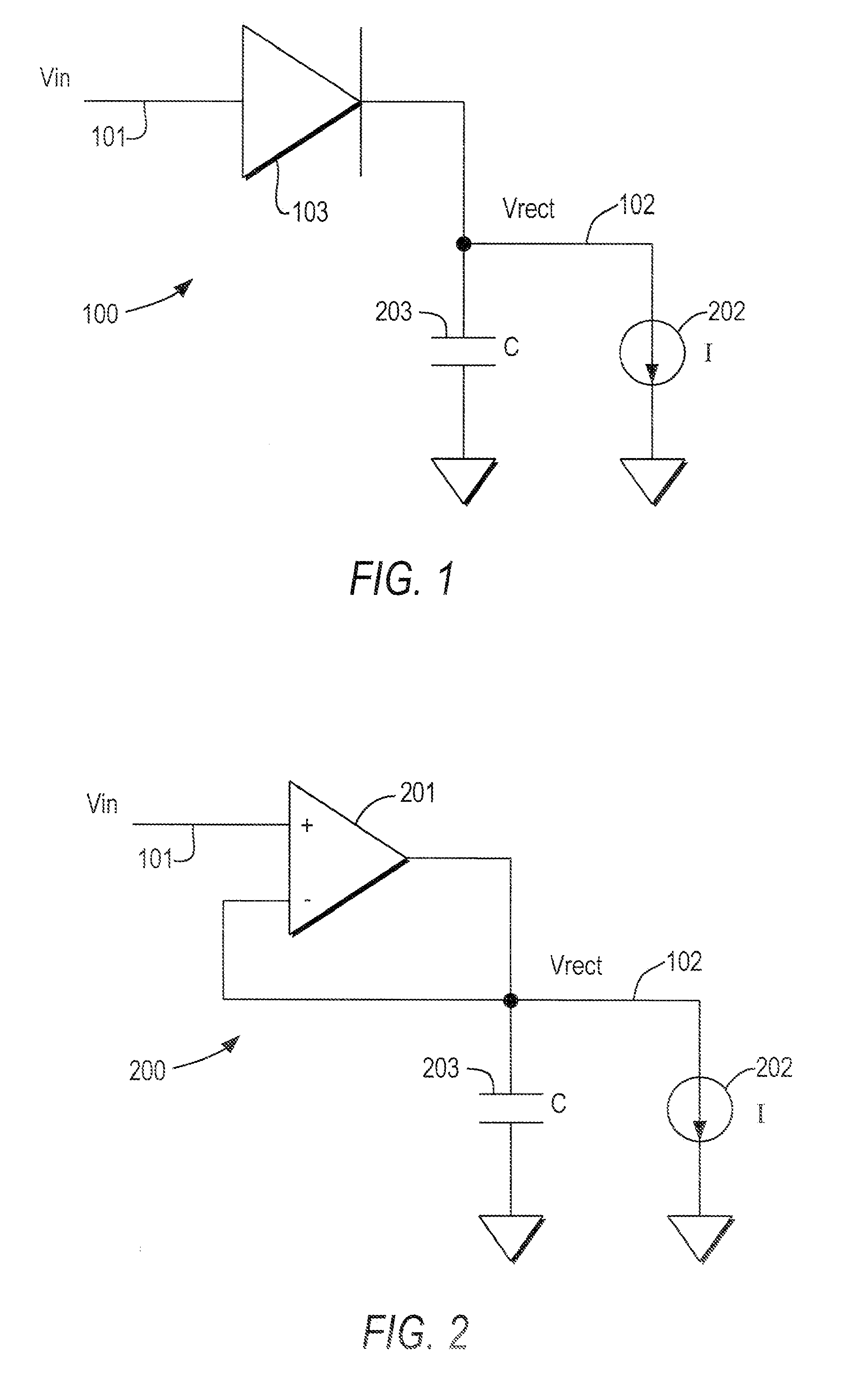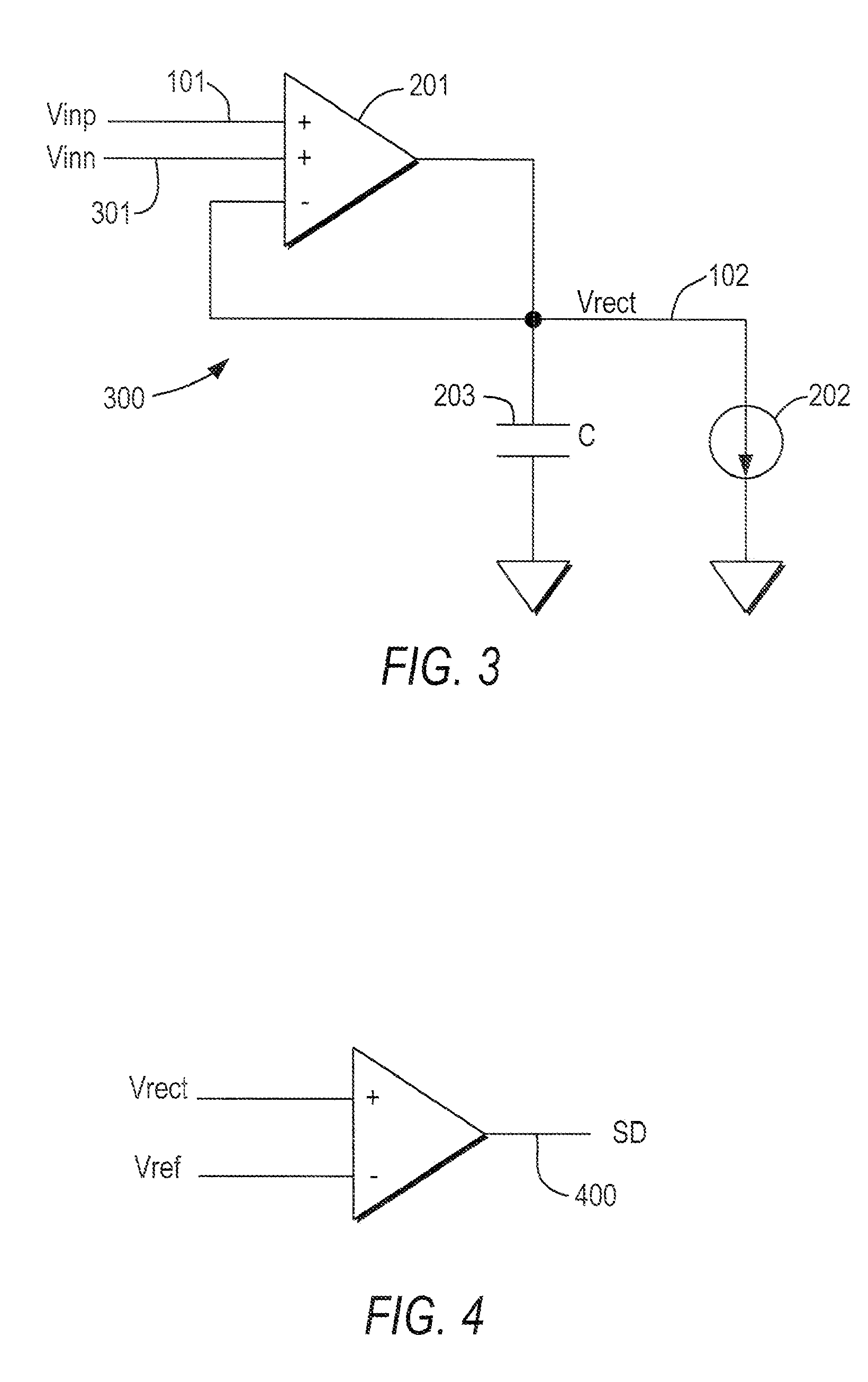Signal detect for high-speed serial interface
a high-speed serial interface and signal detection technology, applied in the direction of instruments, digital computer details, pulse techniques, etc., can solve the problem of greatly reducing the likelihood of failing to detect a signal, and achieve the effect of more accurate signal detection circuitry and reduced likelihood of missing a signal
- Summary
- Abstract
- Description
- Claims
- Application Information
AI Technical Summary
Benefits of technology
Problems solved by technology
Method used
Image
Examples
Embodiment Construction
[0025]Peak detection is used in many applications, such as envelope detection, to extract the absolute value of a signal or for signal amplitude detection from a differential source. In differential signalling standards such as PCI Express, a circuit preferably is capable of detecting differential input amplitudes as small as 165 mV to indicate a valid level. However, known designs have pattern dependencies. For example, a pattern with a high transition density would have a different detection threshold as compared to a pattern with a lower transition density.
[0026]In signal detection schemes, it is necessary to set an amplitude threshold at which a signal is considered valid and an amplitude threshold at which a signal is considered not valid. For example, if Vid=200 mV is set as the threshold at which a signal is considered valid, then if the amplitude equals or exceeds 200 mV, a signal SD (signal detect) would be asserted. At the same time, Vid=150 mV may be set as the threshold ...
PUM
 Login to View More
Login to View More Abstract
Description
Claims
Application Information
 Login to View More
Login to View More - R&D
- Intellectual Property
- Life Sciences
- Materials
- Tech Scout
- Unparalleled Data Quality
- Higher Quality Content
- 60% Fewer Hallucinations
Browse by: Latest US Patents, China's latest patents, Technical Efficacy Thesaurus, Application Domain, Technology Topic, Popular Technical Reports.
© 2025 PatSnap. All rights reserved.Legal|Privacy policy|Modern Slavery Act Transparency Statement|Sitemap|About US| Contact US: help@patsnap.com



